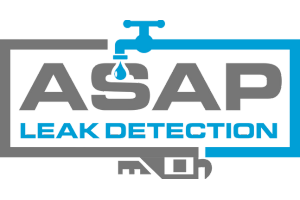
Water damage is one of the most common and potentially destructive issues homeowners face. From burst pipes and leaking roofs to flooding and plumbing mishaps, water damage can quickly turn into a significant problem if not addressed promptly. While it might be tempting to postpone repairs due to cost or inconvenience, waiting to fix water damage can lead to far greater expenses and extensive damage in the long run. Here’s why acting quickly is crucial and how procrastination can end up costing you more.
1. Escalating Structural Damage
When water infiltrates your home, it doesn’t just affect the visible areas; it seeps into walls, floors, and foundations, causing structural damage over time. Wood can warp and rot, drywall can become weakened and moldy, and the very foundation of your home can be compromised. The longer you wait, the more extensive and expensive these structural repairs become.
2. Mold Growth and Health Risks
Mold thrives in damp environments and can begin growing within 24-48 hours of water exposure. Once mold starts spreading, it can be challenging to eradicate and poses serious health risks, including respiratory issues, allergies, and infections. Mold remediation is not only costly but also invasive, often requiring the removal of walls, insulation, and flooring to ensure complete eradication.
3. Increased Repair Costs
Delaying water damage repair typically results in higher repair costs. What might start as a simple fix can escalate into a major renovation. For example, a small roof leak, if ignored, can lead to significant ceiling and wall damage, necessitating extensive repairs. By addressing issues immediately, you can often keep repair costs to a minimum.
4. Electrical Hazards
Water and electricity are a dangerous combination. Water intrusion can damage electrical wiring and appliances, creating a serious fire hazard. If water damage affects your electrical system, you’ll likely need to hire an electrician to inspect and repair the damage, adding to your overall repair costs. Waiting to address water-related electrical issues can put your home and family at risk.
5. Higher Utility Bills
Leaks and water damage can lead to inefficiencies in your home’s systems, such as heating and cooling. For instance, damp insulation is far less effective, causing your HVAC system to work harder and consume more energy, resulting in higher utility bills. Fixing water damage promptly helps maintain the efficiency of your home’s systems and keeps your energy costs down.
6. Decreased Property Value
Homes with unresolved water damage issues often see a decrease in property value. Potential buyers are wary of purchasing homes with a history of water damage due to the potential for hidden problems and future costs. By addressing water damage immediately, you preserve your home’s value and ensure it remains an attractive option for future buyers.
7. Insurance Complications
Insurance policies typically require prompt reporting and mitigation of water damage to cover repair costs. Waiting too long to address the damage can result in denied claims, leaving you to cover the full cost of repairs out-of-pocket. Additionally, repeated or prolonged water damage can lead to increased insurance premiums or policy cancellations.
The Solution: Prompt Action and Prevention
To avoid the high costs and risks associated with delayed water damage repair, it’s essential to act quickly:
- Inspect Regularly: Regularly check your home for signs of leaks, especially after heavy rain or storms. Look for water stains, damp spots, and musty odors.
- Fix Leaks Immediately: Address any leaks or water intrusion promptly. Even small leaks can lead to significant damage over time.
- Invest in Preventative Maintenance: Consider enrolling in a professional leak detection service. Companies like ASAP Leak Detection offer annual service plans that include regular inspections and prompt service calls, helping you catch and address leaks before they become major problems.
- Educate Your Household: Ensure everyone in your household knows how to shut off the water supply in an emergency and understands the importance of reporting leaks immediately.
